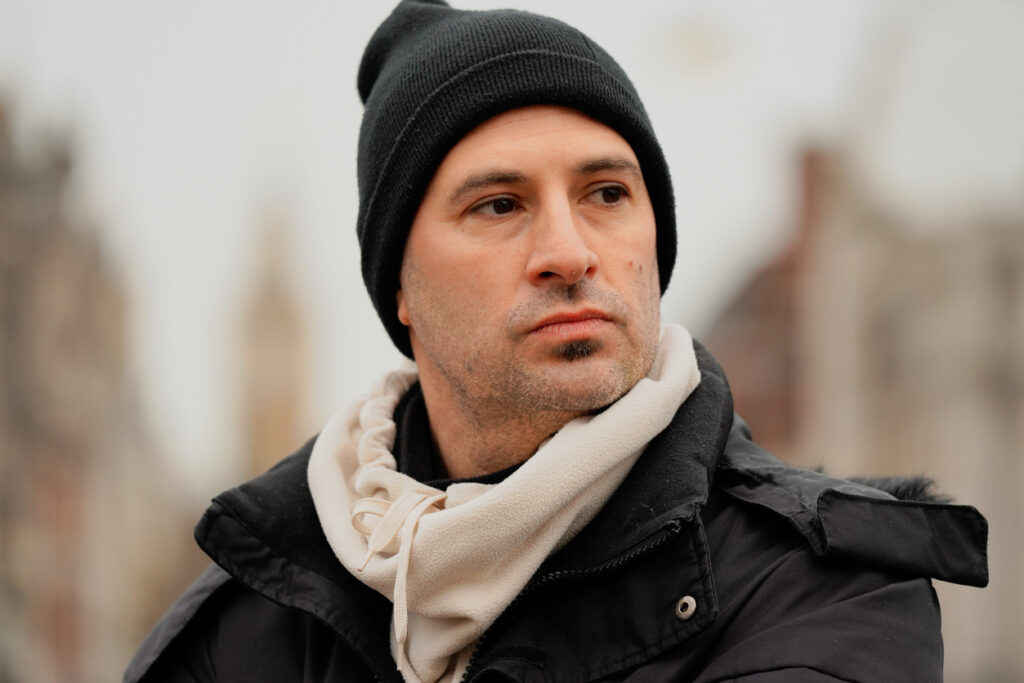Divorcing later in life—what’s often called a “grey divorce”—can pose some unique challenges in comparison to ending a marriage earlier in life.

You’re not the same person you were in your twenties, and neither is your partner. The stakes are different, the emotions are layered, and the fallout can feel more personal than ever. Going through it will quietly push every part of your emotional intelligence to the surface, whether you’re ready or not. Here’s how.
1. You have to stay grounded while your identity changes.

When you’ve spent decades tied to a shared identity—”us,” “we,” “our plans”—the unraveling can leave you feeling like you don’t know where you end and the relationship begins anymore. Staying grounded means building a new sense of self without bitterness. It asks you to rebuild slowly, treating yourself with the same patience and kindness you’d give a close friend going through the same loss.
2. You have to manage sadness without drowning in it.

Even if the divorce feels right, grief still shows up in unexpected ways. The loss isn’t just about the person—it’s about lost dreams, shared history, and versions of life you’ll never get to live out. Emotional intelligence here means making space for sadness without letting it define you. It’s about holding pain gently, recognising it’s real, but also remembering that healing is still possible on the other side.
3. You have to navigate anger without letting it destroy you.

There’s almost always some anger—whether it’s over broken promises, betrayal, or simply the exhaustion of trying so hard for so long. And it can be blinding if you’re not careful. Emotional intelligence means recognising when anger is valid but choosing not to make it the compass you steer by. You allow yourself to feel it, but you don’t let it hijack your growth or your future peace.
4. You have to accept that closure might not be neat.

In a perfect world, every chapter would end with mutual understanding and gratitude. In reality, some endings are messy, unfinished, or full of questions that never get answered properly. Emotional maturity means letting go anyway. It’s about making peace with what you might never understand, and choosing to move forward without the final explanation you once thought you needed.
5. You have to reframe what success looks like.

Success isn’t always staying married forever. Sometimes, success is recognising when something no longer serves both people—and having the courage to walk away with dignity intact. Adjusting your definition of success, and refusing to view the divorce as a “failure,” demands emotional wisdom most people aren’t taught. It’s a radical act of redefining your story on your own terms.
6. You have to let go of resentment over lost years.

It’s easy to look back and feel furious over time you can’t get back—years spent trying, compromising, hoping. Resentment can bloom fast if you let it take root. Emotional intelligence means honouring the love that was there without erasing the hurt. It’s about seeing the full picture—the good and the bad—and carrying forward the lessons without dragging the bitterness too.
7. You have to manage the awkwardness of shared social circles.

Friendships, family events, even community ties can get complicated fast when a long-term marriage ends. People don’t always know how to navigate it, and sometimes, they pick sides without meaning to. Handling this with grace means being bigger than the awkwardness. It’s about maintaining your dignity, respecting people’s own discomfort, and trusting that true connections will withstand the shift over time.
8. You have to sit with loneliness instead of rushing to fill it.

After years of companionship, even if it wasn’t always good, it’s tempting to rush toward something new just to avoid the ache of being alone. However, real growth happens in the gap, not the rebound. Emotional intelligence here is about resisting the urge to numb out or distract yourself. It’s learning to rebuild a life that feels full on your own before inviting anyone else into it again.
9. You have to acknowledge your own mistakes too.

It’s easier to focus on what your partner did wrong. Of course, true emotional maturity means admitting where you fell short too—where you ignored your needs, avoided hard conversations, or settled for less than you deserved. Taking responsibility for your side of the story isn’t about blaming yourself. It’s about reclaiming your power to do better, love smarter, and show up more fully next time around.
10. You have to be careful with old memories.

Old songs, familiar holidays, shared jokes—they still live inside you. And some days, those memories feel like old friends. Other days, they cut deep in ways you don’t expect. Emotional intelligence means knowing how to hold those memories without letting them trap you. You can honour what was beautiful without trying to drag it into the present where it no longer belongs.
11. You have to learn how to comfort yourself.

There will be hard days when no one else quite knows what to say. Emotional independence means learning to soothe your own hurt instead of outsourcing your worth to someone else’s validation. It’s about building rituals of comfort, finding small ways to be there for yourself when the world feels loud or empty, and trusting that self-kindness is a powerful form of survival.
12. You have to tolerate being misunderstood.

Not everyone will get why you’re divorcing. Some people will judge. Some will speculate. Some will project their own fears onto your story, making it about them instead of you. Emotional intelligence is about learning that understanding from other people is a gift, not a guarantee. You tell your truth quietly, and you let it stand without needing everyone else to validate it.
13. You have to trust that rebuilding doesn’t have an expiration date.

There’s no “too late” when it comes to rebuilding a beautiful life. Whether you’re fifty, sixty, or beyond, starting over isn’t a failure—it’s a reawakening of parts of you that were never meant to stay quiet forever. Emotional resilience means giving yourself permission to dream again, even when it feels scary. You’re not out of time. You’re right on time for whatever’s next.
14. You have to be willing to be proud of yourself quietly.

There may not be a parade or a standing ovation for surviving a grey divorce. Your milestones—moving into a new place, signing papers, waking up and feeling peaceful again—might go unnoticed by the outside world. Emotional intelligence means learning to clap for yourself anyway. You recognise the strength it takes to rebuild from the inside out, even when no one else sees the battle you’ve quietly fought and won.
15. You have to grieve the version of yourself who thought this would never happen.

Everyone who gets married starts with a version of life that assumes forever. Letting go of that hope, even when it’s right to, can feel like mourning the person you were when you still believed in it. Allowing yourself to grieve that loss—without shame or minimising—is part of healing. It honours the dream, even as you step forward into building something different and stronger for yourself now.
16. You have to believe that love isn’t used up.

It’s easy to feel like love has an expiration date, that after a divorce—especially later in life—you’ve somehow missed your window. But love isn’t finite. It isn’t reserved for a certain age or certain timeline. Emotional intelligence means holding onto the belief that you are still capable of love, connection, and deep joy—not because you force it, but because you remain open to the quiet, beautiful ways it can return when you least expect it.


